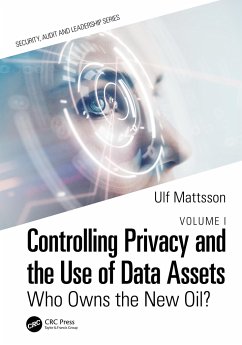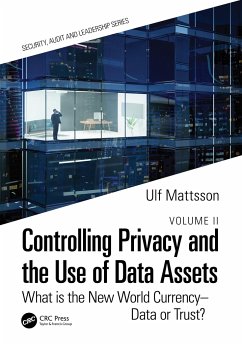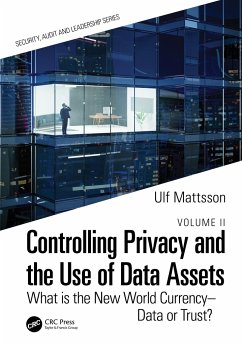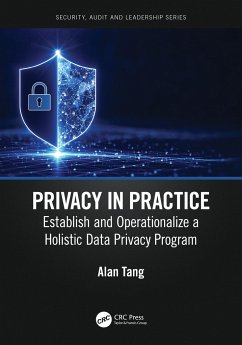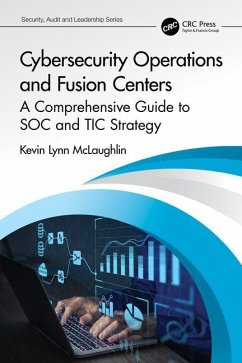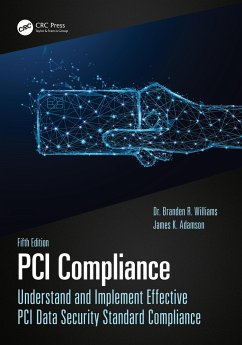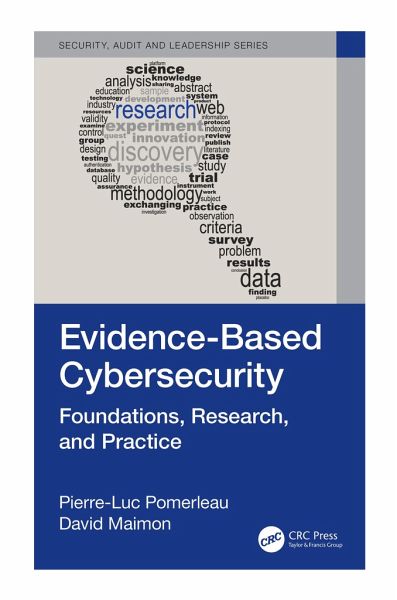
Evidence-Based Cybersecurity
Foundations, Research, and Practice
Versandkostenfrei!
Versandfertig in 6-10 Tagen
67,99 €
inkl. MwSt.
Weitere Ausgaben:

PAYBACK Punkte
34 °P sammeln!
The prevalence of cyber-dependent crimes and illegal activities that can only be performed using a computer, computer networks, or other forms of information communication technology has significantly increased during the last two decades in the USA and worldwide. As a result, cybersecurity scholars and practitioners have developed various tools and policies to reduce individuals' and organizations' risk of experiencing cyber-dependent crimes. However, although cybersecurity research and tools production efforts have increased substantially, very little attention has been devoted to identifyin...
The prevalence of cyber-dependent crimes and illegal activities that can only be performed using a computer, computer networks, or other forms of information communication technology has significantly increased during the last two decades in the USA and worldwide. As a result, cybersecurity scholars and practitioners have developed various tools and policies to reduce individuals' and organizations' risk of experiencing cyber-dependent crimes. However, although cybersecurity research and tools production efforts have increased substantially, very little attention has been devoted to identifying potential comprehensive interventions that consider both human and technical aspects of the local ecology within which these crimes emerge and persist. Moreover, it appears that rigorous scientific assessments of these technologies and policies "in the wild" have been dismissed in the process of encouraging innovation and marketing. Consequently, governmental organizations, public, andprivate companies allocate a considerable portion of their operations budgets to protecting their computer and internet infrastructures without understanding the effectiveness of various tools and policies in reducing the myriad of risks they face. Unfortunately, this practice may complicate organizational workflows and increase costs for government entities, businesses, and consumers.
The success of the evidence-based approach in improving performance in a wide range of professions (for example, medicine, policing, and education) leads us to believe that an evidence-based cybersecurity approach is critical for improving cybersecurity efforts. This book seeks to explain the foundation of the evidence-based cybersecurity approach, review its relevance in the context of existing security tools and policies, and provide concrete examples of how adopting this approach could improve cybersecurity operations and guide policymakers' decision-making process. The evidence-based cybersecurity approach explained aims to support security professionals', policymakers', and individual computer users' decision-making regarding the deployment of security policies and tools by calling for rigorous scientific investigations of the effectiveness of these policies and mechanisms in achieving their goals to protect critical assets. This book illustrates how this approach provides an ideal framework for conceptualizing an interdisciplinary problem like cybersecurity because it stresses moving beyond decision-makers' political, financial, social, and personal experience backgrounds when adopting cybersecurity tools and policies. This approach is also a model in which policy decisions are made based on scientific research findings.
The success of the evidence-based approach in improving performance in a wide range of professions (for example, medicine, policing, and education) leads us to believe that an evidence-based cybersecurity approach is critical for improving cybersecurity efforts. This book seeks to explain the foundation of the evidence-based cybersecurity approach, review its relevance in the context of existing security tools and policies, and provide concrete examples of how adopting this approach could improve cybersecurity operations and guide policymakers' decision-making process. The evidence-based cybersecurity approach explained aims to support security professionals', policymakers', and individual computer users' decision-making regarding the deployment of security policies and tools by calling for rigorous scientific investigations of the effectiveness of these policies and mechanisms in achieving their goals to protect critical assets. This book illustrates how this approach provides an ideal framework for conceptualizing an interdisciplinary problem like cybersecurity because it stresses moving beyond decision-makers' political, financial, social, and personal experience backgrounds when adopting cybersecurity tools and policies. This approach is also a model in which policy decisions are made based on scientific research findings.





